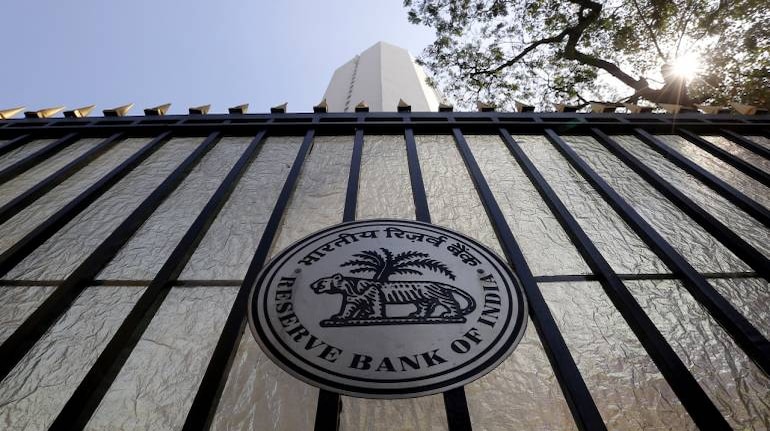



Soumya Kanti Ghosh
In a sheer surprise but on a right course, RBI in its fourth bi-monthly policy decided to keep the repo rate unchanged at 6.50 percent by 5-1 vote though it changed its stance from neutral to calibrated tightening. CPI inflation is projected at 4.0 percent in Q2, 3.9-4.5 percent in H2 and 4.8 percent in Q1 FY20, with risks somewhat to the upside but CPI projections of RBI (based on the fan chart), overstates the actuals. For example, during FY18, actual CPI was on an average 112 bps lower than the RBI projections. On the growth front, though RBI has retained the real GDP growth projection at 7.4 percent for FY19, it revised downward the Q2 projection for FY19 by 10 bps to 7.4 percent primarily due to the probability of dampening investment activity owing to tight global and domestic financial conditions. Interestingly, Q4 GDP projection is at 7.1 percent.

There can be two interpretations of the rate decision by the RBI today. First, the rate decision by the RBI explicitly emphasises that the central bank is largely tolerant with the exchange rate finding its market-determined level and is concerned only to the extent that an exchange rate depreciation feeds into headline inflation. With inflation projection revised downwards to below 5 percent in Q1FY20, there was hence no reason to believe a rate hike.
Second, is there reason to believe that financial instability concerns may have made the RBI apprehensive of a rate hike at this point? This could be possible if we take a cue from the Federal Open Market Committee (FOMC). For example, in the US, frequent mentions of financial instability terms at the FOMC, particularly during bust periods, result in a statistically significant reduction in the funds rate relative to that implied by a simple Taylor rule based on Federal Reserve staff forecasts of inflation and unemployment rates, indicating that simple Taylor rules estimated during periods of financial instability may significantly miss actual FOMC behaviour.
Echoing a similar analogy, it seems that regarding financial instability concerns, the RBI as an overarching regulator of the financial system has explicitly prevailed over MPC participants. Alternatively, MPC participants have not only talked the talk, but they have also walked the walk and acting on financial stability concerns rather than confining its actions to the more narrow concerns about its explicit inflation targeting mandate.
On the developmental and regulatory front, the RBI has proposed an easier investment route, Voluntary Retention Route (VRR), for FIIs who want to invest in long-term funds in the Indian debt market. Under the VRR, FPIs will have more operational flexibility in terms of instrument choices as well as exemptions from regulatory provisions such as the cap on short-term investments (less than one year) at 20 percent of portfolio size, concentration limits, and caps on exposure to a corporate group (20 percent of portfolio size and 50 percent of a single issue).
The RBI has also proposed to introduce a regulatory framework for financial benchmarks which shall apply to benchmarks issued by the Financial Benchmarks of India (FBIL). The FBIL acts as an administrator of the Indian interest rate and foreign exchange benchmarks and aims to introduce and implement policies and procedures to handle the benchmarks. This proposal has been initiated after the controversy surrounding LIBOR fixing. As the robustness and reliability of financial benchmarks are critical for efficient pricing and valuation of financial instruments. Ensuring the credibility of benchmarks promotes their wider adoption which, in turn, facilitates efficient transmission of price signals in the financial system. So, this move is the need of the hour.
The latest data on US non-farm payroll give important indications regarding the US financial condition. The US non-farm payroll increased by 134,000 in September and the data for July and August have been revised upwards significantly. The US unemployment rate has declined in September to a 49-year low of 3.7 percent amidst steady hiring. This robust non-farm payroll data coupled with signs of rising wage growth would fuel expectations over the Fed tightening policy faster than projected. The Fed raised US rates last week and said it planned four more increases by the end of 2019 and another in 2020, citing steady economic growth and a robust jobs market. Higher interest rates tend to boost the dollar and push bond yields up.
This robust non-farm payroll data coupled with signs of rising wage growth would mean a further rise in US treasuries and rupee depreciating from current levels and hence domestic yields firming up. A nervous Monday in store for Indian markets?
An anecdote to end. It is interesting to note that the importance of core inflation has declined during the MPC meeting since June 2018. If we go by the word count of “inflation excluding food and fuel” in press releases of MPC, it was mentioned five times in June 2018, two times in August 2018 and not a single time in today’s policy!
(Soumya Kanti Ghosh is Group Chief Economic Advisor, State Bank of India. Views expressed are personal)
Discover the latest Business News, Sensex, and Nifty updates. Obtain Personal Finance insights, tax queries, and expert opinions on Moneycontrol or download the Moneycontrol App to stay updated!
Find the best of Al News in one place, specially curated for you every weekend.
Stay on top of the latest tech trends and biggest startup news.